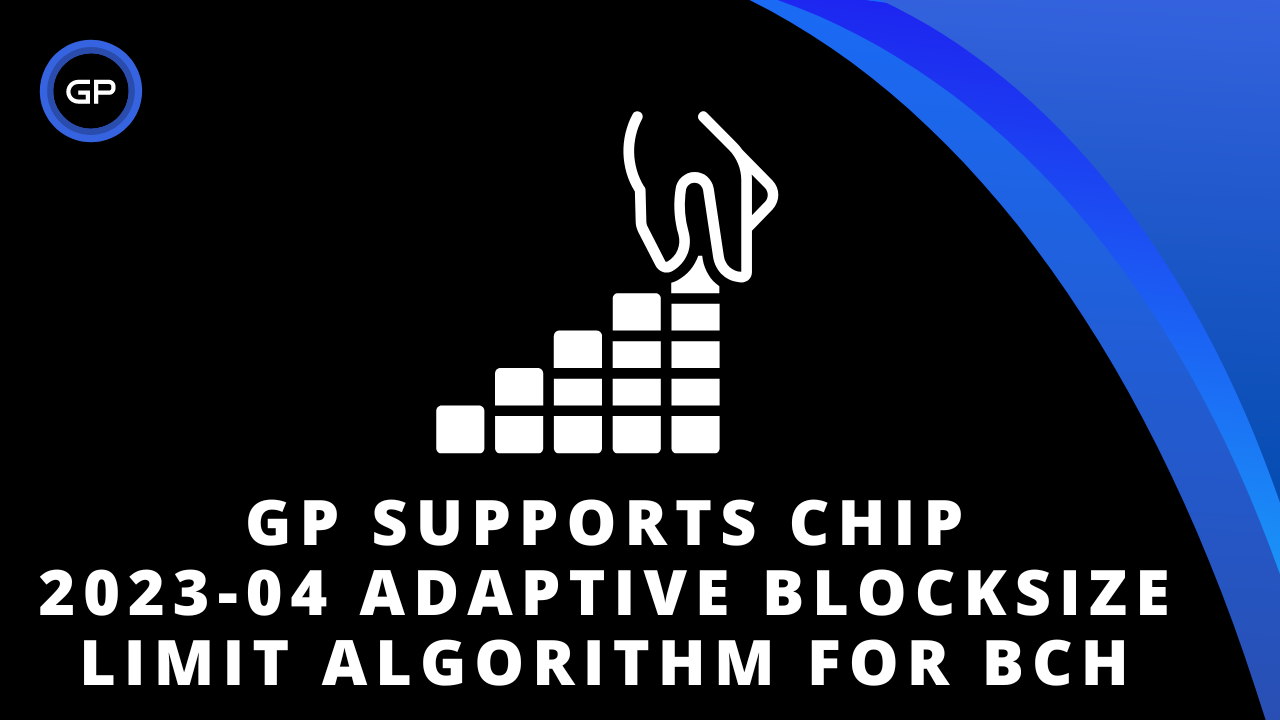General Protocols supports CHIP 2023-04 Adaptive Blocksize Limit Algorithm for Bitcoin Cash

In our last communication about a maxblocksize expansion plan, we listed four criteria that we think are important for a good adjustment algorithm:
Increases in maxblocksize must happen slowly over a long time.
The algorithm should leave reasonable headroom for rare bursts in usage.
The algorithm should reasonably reduce costs for operators in a usage downturn.
Finally, the algorithm should be tested against a reasonable collection of edge cases.
We have examined BitcoinCashAutist's CHIP, "2023-04 Adaptive Blocksize Limit Algorithm for Bitcoin Cash", and found the following:
Even under extremely expansionist scenarios, the algorithm will stay slower than the rigidly scheduled BIP101, which was proposed by Gavin Andresen back in 2015 and acts as a relatively well known "safety limit" among the BCH community.
The algorithm conservatively leaves more headroom than the once-popular BitPay proposal for median-based adaptive blocksize in most places. The more diverse the actual mined blocks are in size, the more headroom it leaves.
The algorithm provides a slow path for reducing maxblocksize, both for long duration downturns and recovery from sudden spikes.
The proposal has reasonably addressed a variety of adverse scenarios, from runaway increases to a short term spam attack to not keeping up with demand. While it cannot possibly be perfect for every occasion and want, we believe it is at a sufficiently robust place when the risks are considered collectively.
Additionally, we found the following desirable traits in support of the proposal:
It already has an implementation that is ready to test.
Extensive simulations and comparison to alternatives have been described.
The proposal still has some room for improvement before deployment:
Most pools will likely inherit default "soft" blocksize caps from node implementations for a long time before they are incentivized by fees to change the default parameter. It is important for the proposal to recommend a starting point for such a cap to achieve short term robustness. Currently that limit stands at 8MB for BCHN, a popular choice for mining pools.
Upon activation, a modified blocksize adjustment algorithm does not automatically provide a robust means to drop un-upgraded nodes, which may persist indefinitely until maxblocksize increases from demand per the algorithm. While they may not pose immediate problems, such persisting un-upgraded nodes may become a risk in the future if they are used in significant economic activities. It would be beneficial for the proposal to recommend an activation strategy, whether automatic or manual, that reduces the risk. At the very least, there should be a discussion about this possible risk, even if it turns out to be remote.
Adopting a long term adaptive blocksize cap addresses a long running issue in BCH and reduces future social friction around upgrades, while inspiring confidence among users and entrepreneurs to invest in the ecosystem. With all the points above considered, we at General Protocols support this proposal for activation on BCH Chipnet in November 2023 and Mainnet in May 2024.
General Protocols Blog
This article forms part of the General Protocols Blog, a collection of cross-platform links showcasing our team's community activity, Bitcoin Cash projects, UTXO development, and general crypto musings.

